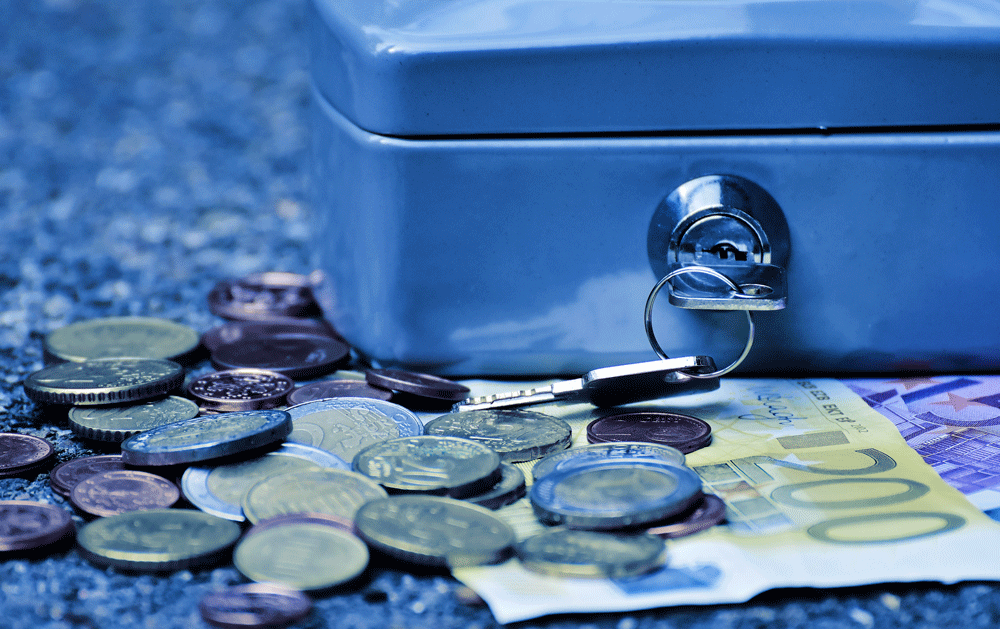Keeping your money safe is of fundamental importance.
Saving it under your mattress is not an option – even for a small amount of cash.
Most people choose to put their cash in a bank account, but is that really any safer?
And if so, how much money is secure in a bank? What about other financial institutions?
In short, putting your cash in a bank account is one of the safest things you can do, mainly because of something called FDIC insurance. It means that any money you have saved in an account up to $250,000 is insured.
In this guide, we further investigate savings accounts and security so that you can gain peace of mind if you are worried about the amount of money you stored away. Plus, we identify the benefits to putting money away and look at why this is, as well as highlighting some drawbacks to saving your cash in a bank, as opposed to other available options.
Savings accounts and bank security
Importantly, if you have more than $250,000 in cash assets, you should open different accounts of up to $250,000, at different financial institutions. Each of them will be protected by the same FDIC Insurance.
However, even if one of your accounts still has more money in it than the protected $250,000, the security at FDIC insured institutions is still excellent and makes putting your money in an account one of the safest places.
Remember, financial institutions have to be secure for them to be worthwhile for anyone to use. For them to have customers, their security procedures have to be robust – plus they are legally required to have the solid security in place.
Benefits to putting your money away in a financial institution
So what are the benefits of putting your money away in a financial institution? Other than the fact that each bank account is insurance up to $250,000, the other benefits are:
Physical protection
Keeping cash in your house or on your person does not provide your money with much physical protection. What if there was a fire in your house? Or what if there was a burglary? The funds you have saved in your home are not protected at all like they would be if they were stolen directly from an insured financial institution.
Ease
With our financial lives moving increasingly online, saving your money with a financial institution actually makes your life a lot easier than dealing with high amounts of cash. Transferring funds to another account can be done with just a few taps on your smartphone. In the past, you may have had to go into a physical location, which is increasingly not the case anymore. Giving another person physical amounts of cash to transfer funds is also a clumsy process that is susceptible to mistakes and errors.
Safety
The danger you put yourself in if you are keeping large amounts of money on your person or in your home is vastly increased than if you keep your money in a state of the art bank. There are many criminals in this world that would look to take advantage of such a situation and cause you physical or mental harm trying to steal from you.
Disadvantages to putting your money away in a financial institution
There are not many disadvantages to putting your money away in a financial institution. Perhaps the most notable may be that your accounts may have fees charged on them in a number of ways or on a number of transactions. Additionally, some accounts may be subject to online fraud if an individual gains knowledge of your login details. However, these risks are minimal and more than offset by the advantages provided by storing your cash safely with a financial institution.
Key takeaways
$250,000 is secure in any FDIC insured account, and that will likely be more than enough for the majority of people. And even if you have more than this and do not want to spread your cash across different banks, consider the alternatives.
Do you want to invest your money in stocks or bonds? Or hold physical cash in a safe – either in your house or a deposit box?
These are of course options. But you must weigh up the pros and cons of each in relation to the benefits you gain from using an account with an insured institution as the place to put your money instead.
Content Disclaimer:
As of the date of publication, the information contained on this page is deemed to be factually accurate for all terms of conditions, features, and fees. Changes made to Cashero’s terms of conditions, features, or fees after the publication of this content may not be accounted for.
App Disclaimer:
The Cashero App is now available for download in both the Apple App Store and Google Play Store, though not all features are currently functional. Cashero has not yet officially launched.
